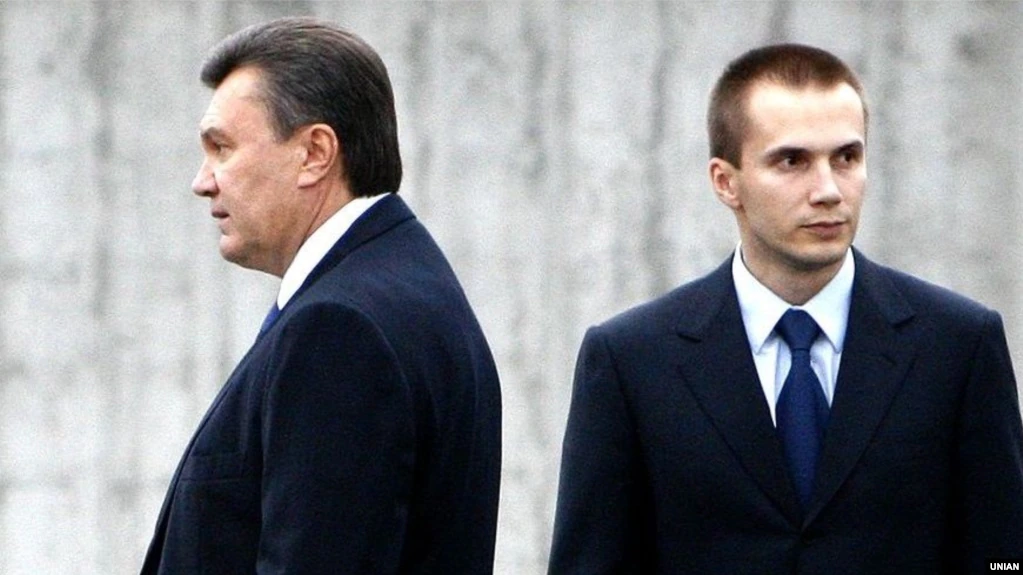Christianity exerts a political influence over a considerable part of humanity, affecting in a special way more than a quarter of the population of the earth. The history of the relationship between Christianity and politics is rather unusual. On the one hand, Christianity seems to undermine the authority of earthly rulers. In the prayer My soul magnifies the Lord it is said: “He showed strength with His arms; scatter them that are proud in the thoughts of their heart; He has brought down the mighty from their thrones and exalted the lowly” (Luke 1:51-52). And it really is. Some time passes[1] and the imp. Constantine the Great straight from the throne falls to his knees before God. Throughout the ages, emperors and kings have knelt before God, while popes, patriarchs, and archbishops have crowned them to reign. Some of them, against their will, were forced to leave the throne: in the 17th century, the God-fearing English beheaded their king during the first revolution in modern history. Around the same time, Christian Pilgrim Fathers left England in search of a better “kingdom” where they did not need a king and laid the foundations of American democracy. Not long ago, the leaders of the communist empire of the USSR were opposed by a Christian – Alexander Solzhenitsyn, which caused great dissatisfaction and irritation among those in power. And then the opposition of one person could be compared to a mosquito that bites an elephant, but it turns out that after a while the elephant dies.[2] There is something about Christianity that is hard to define that constantly disturbs the peace of any political system, whether it is an empire, a dictatorship, a communist regime, or a pagan kingdom.
At the same time, Christianity does not seek confrontation with authority. The Roman Empire becomes “holy”. Christians pray for their rulers. The patriarch or archbishop is a full-fledged part of the political machine. Temples and monasteries are located immediately next to the parliament; in Russia, four temples are inside the Kremlin. Most Christians can serve as exemplary citizens – they vote in elections, pay their taxes, and do their best to maintain law and order. What then is the truth? What does this indeterminacy mean, and which prevails, humility or resistance? Or neither?
Christians themselves do not answer unequivocally. The liturgies call Christ the King of kings. Concerned about the course of events in the world, believers pray to God, ruling over His creation. In a certain sense, Christianity offers answers to a wide range of political questions. In some countries, Christian political parties have become a normal phenomenon in political life and have even gained considerable influence. Elsewhere, the political activism of Christians manifests itself behind the walls of the temple. Participation in political life for them is reduced only to polemics on the problems of family life, abortion and relations between the sexes. In the 21st century, the political vacuum in the Christian environment becomes particularly noticeable in comparison with Islam, whose political activity, despite its ambiguity, is impossible to ignore. So how do Christians feel about politics? This issue is not limited to culture and the choice of political party. It brings us back to the source of the relationship between politics and Christian faith.
The answer to this question is most closely related to the personality of Jesus Christ, whose life and teachings lie at the foundation of Christianity. Every Sunday, over a million churches around the world understand and preach His ideas. His influence has shaped the lives of hundreds of millions, from presidents and ministers to ordinary workers. Christ made an important contribution to political history, but whatever he may have been he has subsequently been seriously distorted, and in order to form an accurate picture of him we must endeavor to study as fully as possible this part of Christ’s life and teaching , which affected politics.
The Political Position of Christ
This concept is much more complicated than it might seem at first glance. From the point of view of modern theological scholarship, it is not difficult to see the errors of the past that deserve attention. A major mistake has been the effort of political leaders for almost two thousand years to subjugate Christianity to themselves, in which these attempts have often been successful. Christians have been offered ready-made versions of the model for the relationship of their faith to politics. As a rule, everything came down to the requirement of unquestioning obedience to the authorities. By quoting the statement of Ap. Paul in Rome. 13:1-7, politicians convince Christians of the need to obey and fully support the actions of governments, which should also be a final solution to the question of Christianity’s relationship to political power. Many Christians have opposed it, but in general this policy has achieved largely successful results.
According to the deep conviction of many politicians, the life and teachings of Christ have nothing to do with politics. They paint Him either as a mysterious person “not of this world” or simply as a great friend of children. And although the latter is very true, the truth is that this very apolitical image of Christ was imposed under the influence of those who wanted to subjugate Christianity to themselves, removing it as much as possible from the political arena. Quotations from the Bible lay at the foundation of monarchies and empires, became the basis for Christians leaving the world and consecrating monasticism. As a result, many Christians automatically obeyed the existing regimes, believing in the apolitical nature of Christ. Their last word is often, “Render unto Caesar what is Caesar’s” (Mark 12:17).
Wide spread of the opinion about the incompatibility of religion and politics appeared relatively recently. In England it becomes ok. 1600, when the authorities – disturbed by the radical views of some Christian associations – decided not to allow them to participate in political life because of their dissent.[3] Gradually, political thought and ideology were completely separated from theology. Thomas Hobbes, in his major political guide, Leviathan, has separated much of the Christian reasoning into a separate, concluding section. Later, political philosophy came to be seen as secular in nature, with Christianity completely and unconditionally excluded from it. Leading thinkers such as Montesquieu, Rousseau, Hegel, Comte, Marx, Mill, etc. they think exclusively in a secular context, thus in a large part of society the thought of separation of religion from politics is finally formed. In order to participate in political debate, Christians are required to leave their beliefs out of the discussion. In the US, this leads to their approval in a legislative order. In the First Amendment to the US Constitution, Church is separated from State (which is probably rightly so) and anything religiously defining and constitutive is completely excluded from politics. The step can hardly be called logical, but its influence turns out to be decisive. The belief is formed that politics cannot be mixed with religion – just like oil and water. As a result, there is no need to think about Christ’s political views. Because they could not have anything to do with the issues of state management. This way of thinking is also adopted by many Christians, whose political views immediately take on a secular character.
On the other hand, there are also people who found in Christ a reflection of their own ideology. At different times, Christ has been portrayed as a revolutionary, as a fighter for political independence, as a socialist and a conservative – in attempts to fill the Gospel with modern political content, at that very selectively. In the 19th century, God was represented by many as a force able to keep the worker in subjection. The Nazis later claimed that Christ was not a Jew but an Aryan. Some ideologues count him among the Marxists, the hippie culture and even as a supporter of M. Thatcher.[4] From a modern perspective, the ideologically corrupted perception of Christ by many generations of people is visible to us – from which we are also in danger, because our understanding of the Gospel is invariably influenced by our own beliefs and cultural values.
However, many theologians and simple readers of the Bible refuse to study the life and ministry of Christ only from the position of their own interests, but humbly pay attention to the messages that sound from the pages of the Gospel. What do they discover? Early biblical studies focused directly on the text of Scripture. They were written by people who knew Jewish history, who said much of what will be discussed here. A good example can be the work of A. Edersheim[5] Life and times of the Messiah Jesus.[6] Without making politics the central theme of his research, the author has managed to clearly show the political content of the Gospel. Later, about 30 years ago, Yoder’s book The Political Convictions of Christ was published.[7] The main theme of this book is indicated in its title. In Wright’s relatively recent work Christ and the victory of God, [8] regardless of his theological orientation, the political aspects in the teaching of Christ are clearly traced. The same can be said for other new works.[9] In recent years, authors have focused their attention on the political and socio-economic context of the Gospel, bringing to the fore certain questions of a political nature. This book was also written as a continuation of that effort. At the same time, we must admit that many modern researchers completely ignore this aspect.
At this stage, it is important to clarify what exactly should be understood by the word “policy”. Many deny their involvement in politics, referring to their reluctance to join the ranks of one party or another or to take part in political elections. However, this is not about “narrow party politics”, although the actions of political parties are almost never limited within narrow party frameworks, but about St. A scripture abounding in accounts of inter-party struggles for the minds of men. In our understanding, politics includes everything related to the state structure: government, laws, national self-awareness, power, justice and taxes, statehood, international relations, wars and economic policy – everything that, over the centuries, has been an inalienable part of human existence. At first sight it may seem that such a definition has nothing to do with Christ. He had no army, collected no taxes, and, apart from the judgment meted out to him, wore no royal robes. In this sense, Christ stands before us as an apolitical figure.
However, if we delve more carefully into the content of the Gospel, we can reach completely different conclusions. The representatives of the major political parties of the time were afraid of Christ and His pronouncements on various political issues. We will begin to understand that the most notable politicians were far from always in power. No one can deny the influence of Gandhi or Marx on the course of world history, and that influence is only a faint reflection of the impact made by the humble Galilean. So if we look at politics in a broader sense, such as legal government and legislation, power and party system, conflict, popularity, social security and tax collection, we will find more than enough material to write a work on the political views of Christ.
It is important to mention one more thing. It often seems to us that we understand “politics” well. Presidents, palaces, taxes, elections and political parties have become our daily reality. Political scientists study law-making, management, foreign policy and other phenomena that have received a very clear definition in our time. Yet we must keep in mind that these concepts have changed over the centuries and continue to change today. These changes have become the subject of study in the history of political thought.
We are about to look upon a time when the multitude expressed its opinion, not by ballots, but by loud shouts; when the Prime Minister did not make statements on radio and television. Understanding such cultural differences should not cause great difficulty. It can be much more complicated to meet a person who in many ways has changed the very understanding of politics as such. In our time, we usually perceive politics as a way to gain and hold power, but in the first centuries they thought in a similar way. The words and actions of Christ indicate a completely different view of politics, and it is possible that He will change our ideas about it as well, as He did more than once with His contemporaries. And that is why we will have to reconsider the very fundamental questions related to this topic.
In this broader sense, politics played an important role in the life of Christ. Political leaders saw His teaching as a threat to the system of government. The clash with the religious leaders and the trial in Jerusalem are above all political in nature. Crucifixion serves to punish political criminals. Christ’s teaching and parables concerning laws, levies and party politics, litigation and dealings with foreigners challenged the influential politicians of His day. In the Gospel, He is repeatedly called the King of the Jews. All this will become the subject of our research. We will deliberately bypass other topics of His teaching. This book should not be defined as exhaustive, since its subject of study is limited to an analysis of the political content of the Gospel. I hope we can avoid political bias and undue attention to certain political agendas. This requires a detailed analysis of the Gospel texts. Sending his Twelve into the world, Christ says to them: “Beware of men; for they will hand you over to judgments and scourge you in their synagogues, and bring you before rulers and kings for my sake, that you may testify before them and before the Gentiles”. (Matt. 10: 17-18). Obviously something political is going on, but what exactly? Politics is only one side of the Gospel – and not the most important one. We should always be guided by the fact that only a topic that is obviously political can be considered political. It is possible that this is not a deeply scientific principle, but it makes it possible to correctly evaluate one or another interpretation. The analysis of the political views of Christ – Himself the greatest person in the history of the world – is more than enough subject matter for this book.
Ruler by God’s grace?
Religion and politics are dangerous subjects. They can spoil even the most pleasant interview, but nevertheless we have chosen these questions. The teaching of Christ has become the main thing in the lives of billions, and politicians decide the destinies of no fewer people. Essentially, here we will only retell parts of the Gospel, revealing the political color of ideas and events, but at the same time we will also draw much more distant conclusions. In a historical context, these events amaze and delight us. Christ’s words and actions have nothing to do with the established and vicious political practice that dominates world history. They open before us new horizons and point to new paths. The huge door of God’s world opens before our eyes, where goodness and beauty rule, and the very nature of politics changes. Many have tried to oppose this change both in the time of Christ and in our day, but nevertheless the most magnificent change in political history has already taken place. To explore this as fully as possible is a goal worthy of serious study. That is exactly what we have tried to do. To get an idea of the political situation at the time of Christ, we will look at one of the main political figures of the era – King Herod the Great.
* Storkey, A. Jesus and Politics: confronting the powers, Michigan 2005, p. 7-21.
[1] From the moment of the Incarnation (note).
[2] For more on this see: Alexander Solzhenitsyn, The Oak and the Calf, London; New York, 1980.
[3] In the 1600s, the leaders of the British Restoration, in their demands for orthodoxy, tried to deprive Christians of the opportunity to participate actively in the political life of the country. And in many ways they have succeeded in achieving their demands.
[4] In a speech in Edinburgh, Mrs Thatcher referred to the parable of the Good Samaritan as a call to increase wealth. This idea can be traced even more clearly in a sermon delivered on March 4, 1981, in the London Jewish Church of St. Lawrence” and printed in the magazine Third Way in May 1981, where the influence that certain “Christian postulates” had on her in the management of state affairs is presented even more comprehensively.
[5] One of the leading biblical scholars of the 19th century, in many ways still relevant today; converted to Christianity, he sought to help other Jews to see Jesus Christ as the true Messiah (note).
[6] Edersheim, A. The Life and Times of Jesus the Messiah, 1883, 3d. ed., 2 vols. in 1, London 1906.
[7] Yoder, J. H. The politics of Jesus: Vicit Agnus Noster, Eerdmans 1972.
[8] Wright, N.J. Jesus and the Victory of God, London 1996.
[9] For example: Kealy, S. P. Jesus and Politics, Collegeville 1990.
Photo: azbyka.ru













